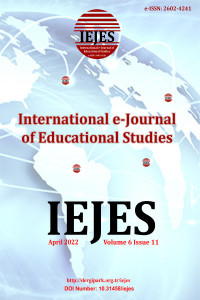The Role of Women’s Organizations towards the Development of the Idea of University
Since the Russian Revolution of 1905, the great wave of formation of various types of women’s organizations took a massive scale. At the beginning of 20th century, the first higher educational courses were opened for women in the Caucasus. Significant educational activities were conducted by the following organizations established by and for women: “Georgian Women’s Charity Organization”, “Commission of Tbilisi Women’s Circle”, “Georgian Women’s Society”, “School for Poor Girls”, “Society of Education”, “Society of Knowledge”, “Georgian Unity of Equality for Women”, etc. Hitherto existing charity and educational activities were enriched with the women rights’ problems. Women’s organizations appeared not only in the capital city but the provinces as well. The process strengthened with participation of not only Georgian but women of other nationalities too. The first formalized organizations were functioning as committees, unities, circles or commissions, mostly temporarily. However, they contributed much to the nation’s further educational and cultural development, culminating in the opening of the first university in Georgia in 1918. The aim of the present paper is to trace the process of the formation of the idea of University in Georgia at the turn of the 19th-20th centuries, beginning from Ilia Chavchavadze’s invaluable contribution towards the national revival through women’s significant role up to the final foundation of the Tbilisi State University in 1917 and opening it in 1918
The Role of Women’s Organizations towards the Development of the Idea of University
Since the Russian Revolution of 1905, the great wave of formation of various types of women’s organizations took a massive scale. At the beginning of 20th century, the first higher educational courses were opened for women in the Caucasus. Significant educational activities were conducted by the following organizations established by and for women: “Georgian Women’s Charity Organization”, “Commission of Tbilisi Women’s Circle”, “Georgian Women’s Society”, “School for Poor Girls”, “Society of Education”, “Society of Knowledge”, “Georgian Unity of Equality for Women”, etc. Hitherto existing charity and educational activities were enriched with the women rights’ problems. Women’s organizations appeared not only in the capital city but the provinces as well. The process strengthened with participation of not only Georgian but women of other nationalities too. The first formalized organizations were functioning as committees, unities, circles or commissions, mostly temporarily. However, they contributed much to the nation’s further educational and cultural development, culminating in the opening of the first university in Georgia in 1918. The aim of the present paper is to trace the process of the formation of the idea of University in Georgia at the turn of the 19th-20th centuries, beginning from Ilia Chavchavadze’s invaluable contribution towards the national revival through women’s significant role up to the final foundation of the Tbilisi State University in 1917 and opening it in 1918
___
- Gaprindashvili, L. (Ed.) (2005). Gender, culture, modernity. Tbilisi: OSGF TASO Foundation
- Gaprindashvili L. (2013). “Feminism and women’s rights: movement from the edges to the center”, in who is afraid of feminism in Georgia?!, Tbilisi: Heinrich Boell Foundation
- Nadaraia, L. (2005). “Woman and politics in modern Georgia”, in Gender, culture, modernity, edited by Lela Gaprindashvili, Tbilisi: OSGF TASO Foundation
- Ninidze, K. (2017). Women’s literary activities in Georgia. Retrieved from https://ketevanninidze.wordpress.com/2017/03/08/83 published on March 08, 2017
- Surmanidze, L. (1997). “Woman in Georgian mentality”, topical gender problems, Women’s Magazine, pp. 2-8 Enlightenment in Georgia, project: http://nateba.websail.net/
